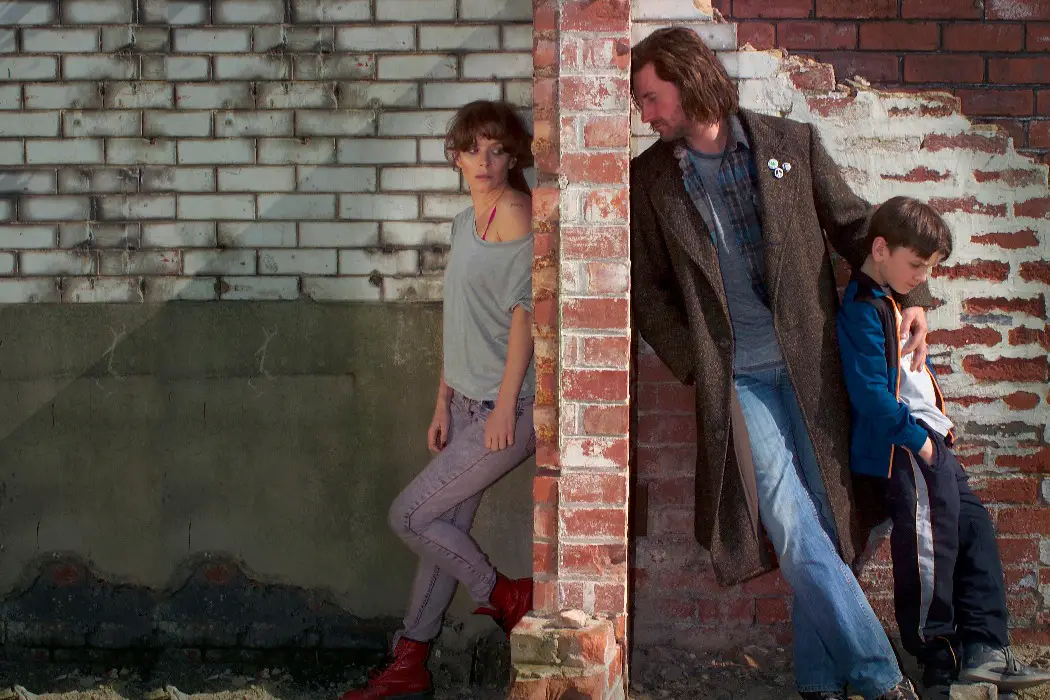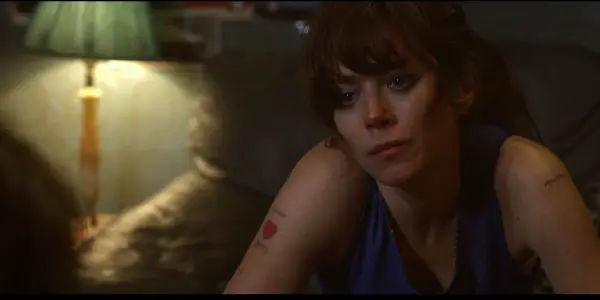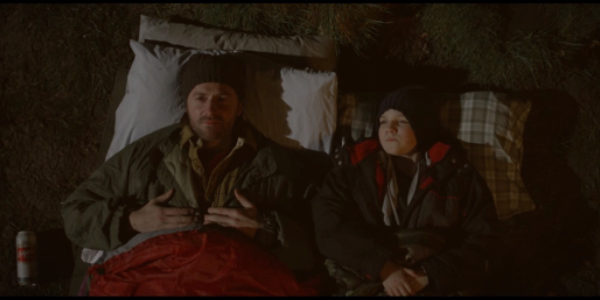URBAN AND THE SHED CREW: Another Win For Female Filmmakers

Amyana Bartley is a screenwriter and producer. Her company, Queen…
“Ya can’t let kids go hungry and uncared for without one day reapin’ a whirlwind”. An all-encompassing line, spoken by Chop (Richard Armitage), that resonates, not just for the abandoned children of Leeds, but for forgotten children worldwide. Urban and the Shed Crew is a film that deals with one of the harsh, depressive realities of our world, using compassion and warmth at its center.
The Casualties of a Broken System
A 2017 article revealed that child poverty in the UK had hit it’s highest point since the 2008 financial crisis. Due, in part, to the lack of mental health awareness, addiction treatment and, with the dubious policies of the prevailing, conservative, Tory Party, child poverty looks to continue worsening if something isn’t changed.
Based on Bernard Hare’s (aka “Chop”) memoir of real-life people, the story is set in 1990’s Leeds, Yorkshire. Urban Grimshaw, (Fraser Kelly) is an 11-year-old runaway of a drug-addicted mother, Greta (Anna Friel). Living in a rough, run-down part of the city, Urban is just one of many throwaway kids roaming the streets. Unable to even read or write, he spends most of his time with “The Shed Crew”, a band of feisty runaways who spend much of their time “off their heads” on drugs and alcohol.
In Urban’s short lifetime he’s been in eight orphanages and six foster homes. Though Greta struggles to keep Urban and her five other children at home, her addictions are much too strong an adversary for her to beat. Her life seems to take a turn for the better when she crosses paths with Chop.

Bernard “Chop” Hare is a down and out ex-social worker, entirely burnt out and run down by the system he once worked in. Emotionally scarred, he also has turned to heavy drinking and some drug use, struggling to find a glimmer of hope in the world he lives in. When he runs into Greta outside his apartment complex, he first fancies her and invites her in for some vodka and a “big pot of skunk”. She ends up telling him the trouble she’s having with the social workers and he agrees to help her get her kids back. After they all meet with the social workers, Chop decides to take Greta and her children in, hoping that this might be the redemption he’s seeking.
Hope In the Depths of Despair
Through Urban and his brother Frank (Charlie Heaton), Chop meets more of the Shed crew as they start to hang out at his flat and begins to realize the depths of the parentless, mostly fatherless, children roaming the streets. He teaches them about reading and writing, doing his best to lift them out of their hopeless situation, even for a short time. He also becomes a father figure to Urban, despite the impossible relationship with Greta. Through their bond, Urban starts to feel hope in finally having a semi-responsible parent figure in his life.
Though Urban’s situation living with Chop is far from perfect, it becomes a semblance of home. Director and co-writer Candida Brady made the decision to focus on the love and hope embedded in the story, instead of focusing on the anger, depression and despair of addiction and poverty. Through this angle, we are gifted with glimpses into the soft sides of the main characters, missing in most films of this kind.
We see the innocent boy in the jaded, hardened Urban; the soft, caring and broken sides of a benumbed, disheartened Chop; and the sadness and struggles with shame, failure and hopelessness in Greta. This adds multiple layers of depth to the film, and coupled with bouts of humor, it makes the subject matter both easier and more interesting to watch. As a result, there is beauty to be found amidst the heaviness of the topic, and oppressive filth and harshness of the reality.

The acting from the three main characters is nothing short of excellent. Friel‘s delivery of an uneducated, down on her luck addict is PHE-NOM-E-NAL. There wasn’t a single point in the film that I did not believe she wasn’t the real thing. I can honestly say that I’ve never seen a better performance of an addicted mother; the difficulty of pulling off drunk or high convincingly is no small feat in the acting world. Plus, the ever-present agitation and insecurity, found in most addicts. was a constant companion in all of her interactions. Friel deserves every award and accolade possible for this depiction.
In what looks to be his first film, Fraser Kelly pulls off the unpredictable Urban flawlessly. Even with all of the swearing and obscene gestures the kids render, he still projects the preciousness of a child the audience will sympathize with. He delivers an authenticity and honesty not seen in many grown actors. He makes Urban a character to root for and also elicits heartbreak in all the right places. Kelly navigates a multifaceted character, with an extremely difficult life and the relationships with Friel and Armitage‘s characters, seamlessly.
There is also a heartfelt bond between Fraser and Armitage, crucial to the characters. Armitage portrays a character, expected to be asperous and callous, with a delicate grace, even though he’s dirty and disheveled throughout. Chop’s struggle to do the right thing, while also protecting himself, is palpable. We see and feel Chop’s hesitance to become emotionally involved. Armitage‘s sensitivity with the role allows us to see a side of Chop that we’d never know without.
In a world where men are chastised for displaying compassion, it was refreshing to see. Armitage flourishes in roles such as these, and it’s always nice to see the heart of an actor rather than the facade of someone else’s expectations. Any performance and script are at their best when drenched in truth and honesty.
Society’s Reality
That’s where the importance of female directors and filmmakers plays in. Women are “allowed” to feel more and express more emotions in society. We are seen as the nurturers and caretakers. Though we are chastised as weaker for this, it actually takes more courage to feel than to not. I’ve noticed huge differences in how a story is handled between a male versus a female filmmaker. Though the world is big enough to share stories between them, the overwhelming majority are still male made, because the men who run this business deem women unable to “handle” tough stories. But the truth is just the opposite.

If Guy Ritchie would’ve made Urban, I think we would have missed out on a whole bunch of beautiful nuances that Brady brings. From the trailer, I expected to see a fast-moving, “Ritchie-esque” depiction of hardened lads acting out in laughable, unemotional antics without much consequence. Instead, we saw the same hard character types, coupled with the reasons why they act out in the way they do. Pain, abandonment, poverty, failure and hopelessness create lives of desperation and unscrupulous behaviors. Film is an emotional medium tailor-made for those in touch with their feelings. Therefore, it’s insanity not to have female filmmakers.
Urban and the Shed Crew takes place in the nineties, but childhood poverty isn’t any better now. More than 30% of children in the UK; nearly half in the US and a billion children worldwide live in or below poverty. Children in poverty are susceptible to a whole host of tragedies and crimes that most children aren’t. Runaway or abandoned children in the developed world deal with assault, prostitution and trafficking, on top of the lack of education, hunger and addiction they face.
The problems for children in underdeveloped countries are even worse. In addition to all of the above, these children face higher rates of HIV; diseases contracted from lack of basic sanitation and clean water; child marriage; malaria-spreading mosquitoes; child labor, and higher death rates for children under five. To call child poverty an epidemic would be an understatement.
Urban and the Shed Crew: Conclusion
Urban and The Shed Crew stands as it is with unapologetic sincerity. It is real; it is human; it is unfortunate society and it is truth. Like life, it has consequences we don’t want, yet it leaves a window open for the possibilities we all hope for.
The filmmakers have teamed up with the organization Action For Children: just one of the many charities receiving proceeds from this film. While we push toward change in our governments, it is on the backs of passionate individuals and non-profit organizations to step in where politics won’t. The day to day heroes, who are never glorified in the press, are the ones we owe our gratitude to. With films like Urban and The Shed Crew and her documentary Trashed, Brady is one of those people, using her creativity and resources to make a difference.
When film uses its reach to bring attention to topics of worldwide concern, miracles can happen. Imagine the possibilities if mainstream film was valiant enough to use its colossal platform for the collective good.
Urban and the Shed Crew is available to rent/stream here. Donate to Action For Children UK here.
https://www.youtube.com/watch?v=gUwiZ3vid9I
Does content like this matter to you?
Become a Member and support film journalism. Unlock access to all of Film Inquiry`s great articles. Join a community of like-minded readers who are passionate about cinema - get access to our private members Network, give back to independent filmmakers, and more.
Amyana Bartley is a screenwriter and producer. Her company, Queen B. Productions, supports filmmakers of all walks, interested in creating thought provoking, moving projects. As her company grows, she will create "real jobs" for any talented artist, in front of and behind the screen, who is passionate about making a difference using the art of film.













